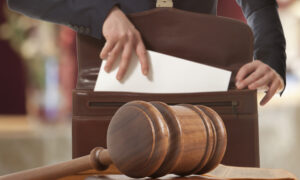
It’s generally simple to determine who is responsible when you get hurt while on another individual’s property, like when you are tripping and falling at a store. The business that owns the store, or the landowner, will typically be responsible for your injuries. But what is to be done about incidents that happen in circumstances where numerous parties may be held potentially accountable, such apartment complexes? According to The Stano Law Firm, depending on who owns the property where the accident happened, either the landlord or the lessee would be held accountable. Let’s go over how courts in certain situations allocate blame for mishaps in the paragraphs below.
General Premises Liability Rules
“Premises liability” refers to responsibility for accidents that take place on a party’s property other than their own. All property entries are divided by law into three main categories:
- Invitees: Visitors who have been permitted onto the site for professional reasons
- A person who is on the land for their personal advantage is a licensee (such as social guests)
- People who enter a property even without landlord’s or occupier’s consent or knowledge are considered trespassers.
While landowners and occupants owe licensees the responsibility to warn of any dangers they are aware of but are not compelled to inspect and make safe, they owe invitees the duty to check the facilities and ensure their safety. Trespassers have no obligations from owners or occupiers other than to abstain.
In light of this, let’s discuss when tenants and landlords are each responsible for injuries.
Property Managed by the Landlord
Common areas like lobbies, rooftops, corridors, elevators, and recreational spaces are included in the list of places where landlords are often responsible for incidents that take place on property under their control. Consider a scenario where you are visiting an acquaintance and the elevators malfunction and fall many floors while you are getting to their apartment. As a result, you get hurt. The landlords would’ve been liable for your injuries because the elevator is a property that is within their management instead of the tenant’s.
Property Managed by the Tenant
Tenants are responsible for accidents that take place on property that is under their exclusive control, including their apartment buildings and any other property. As another illustration: Let’s imagine that while inside your friend’s flat, you trip and fall on a water stain that your acquaintance had dropped earlier in the day. Your buddy would be accountable for your accident because it happened in their unit, which they had sole authority over, and they were required to alert you to the puddle’s presence.




